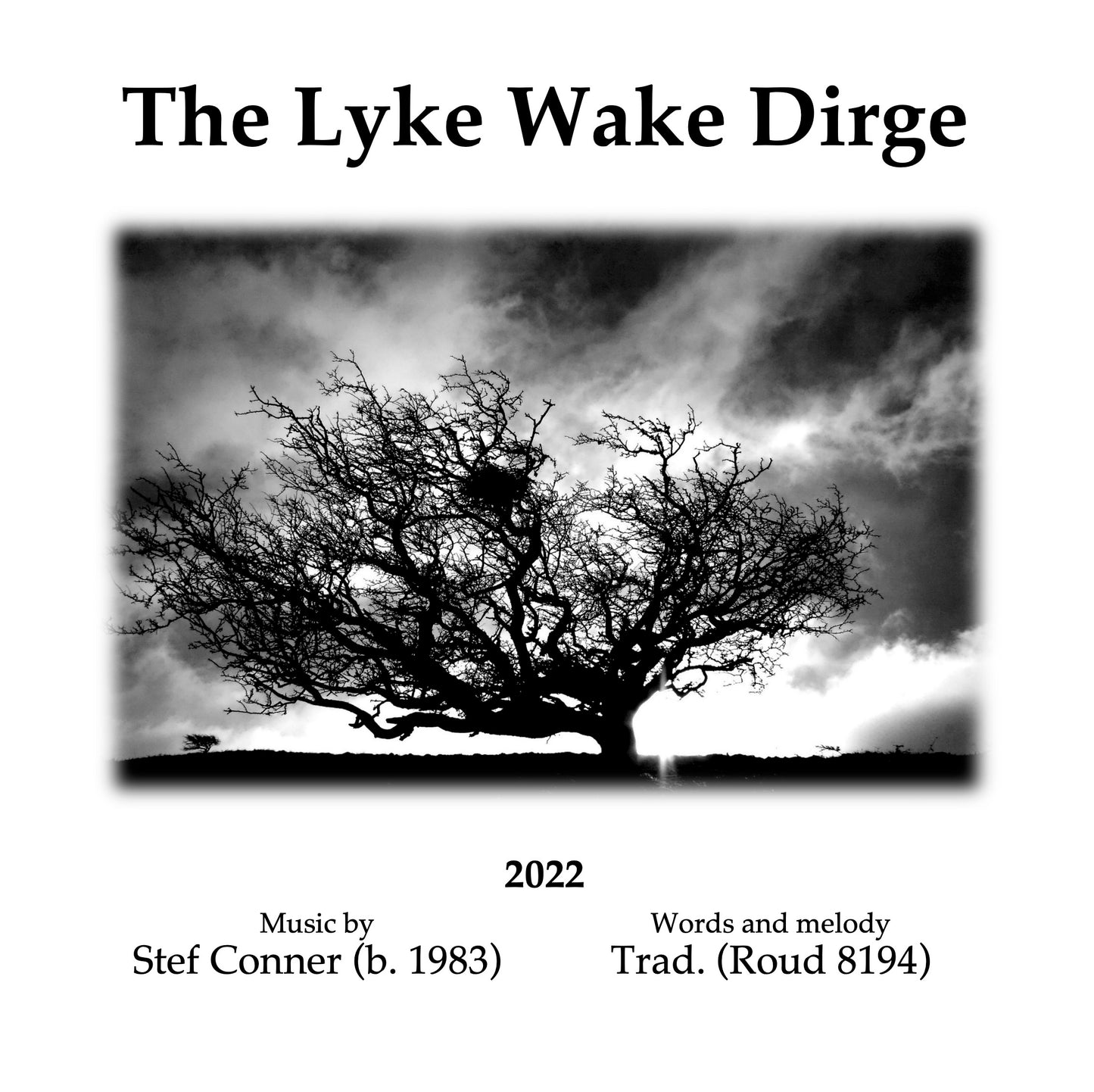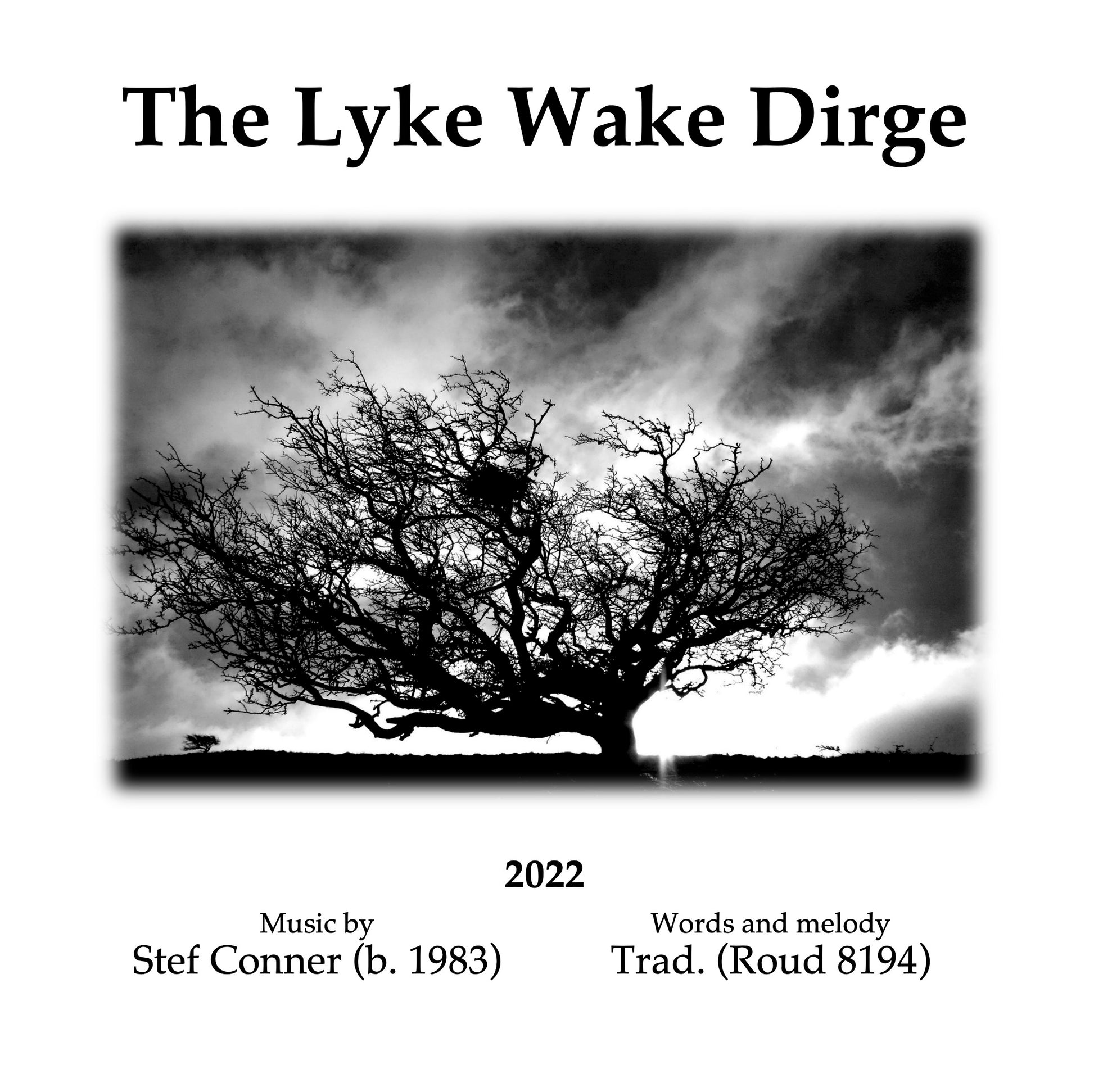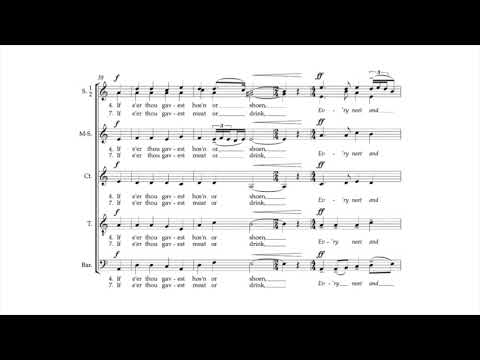The Lyke Wake Dirge (ornamented, for solo-voice ensemble), performance materials + license
The Lyke Wake Dirge (ornamented, for solo-voice ensemble), performance materials + license
Please select the appropriate license from the 'Size of ensemble' dropdown list below. Free perusal scores are also available.
Couldn't load pickup availability
Quick summary
- Forces: SSAATB solo-voice ensemble (6 singers)
- Duration: c. 6′
- Difficulty: medium–advanced
- Text: traditional
- Language: English, old Yorkshire dialect
- Date of composition: 2022
- Premiere: The Marian Consort, 2022
Licenses include the appropriate number of print-outs for the specified ensemble size, and are valid for unlimited performances by the same ensemble.
Detailed info
The Lyke Wake dirge is a widely performed Yorkshire traditional song, with text said to date back to the 14th century. Its bleak words tell of the soul's journey after death, with the landscape of the Yorkshire Moors setting the scene for torments visited upon those who were not charitable during their lives. The message is simple: if you were kind, and gave 'meat or drink' to the needy, you will be spared the torments of hell; if you were not, you will be pricked 'to the bare bane' by the thorns of Whinny Moor! These ancient words, bleak as they may be, still resonate today with singers who believe in the sanctity of kindness.
Stef's arrangement preserves the stark power of harmonisation in parallel fourths and fifths, which evokes the medieval origins of the words and pays homage to influential folk harmony arrangements such as the version by the Young Tradition. But, it also incorporates rich, challenging harmonies that build in intensity as the promise of merciless judgement unfolds in the text.
A sense of funereal ritual in this arrangement is enhanced by the inclusion of optional rhythmic footsteps, which may be realised in procession or on the spot. The piece is especially effective if performed in procession, from memory. A compromise that would allow choirs to process into and out of the performance space without memorising the whole piece would be to perform the first and last verses (the last is a repeat of the first) from memory, and the rest of the piece from notation.
Important note: this piece is available in both ornamented and un-ornamented arrangements. The ornamented version, which is based on English traditional singing, is only suitable for ensembles with one voice per part, because of the complexity of the ornaments. This is the ornamented version. The un-ornamented version is available here.
Share




